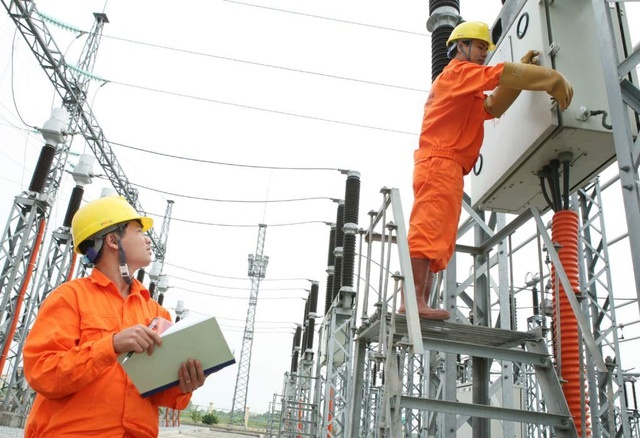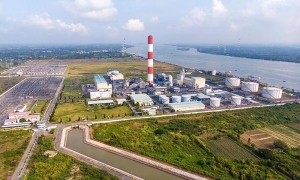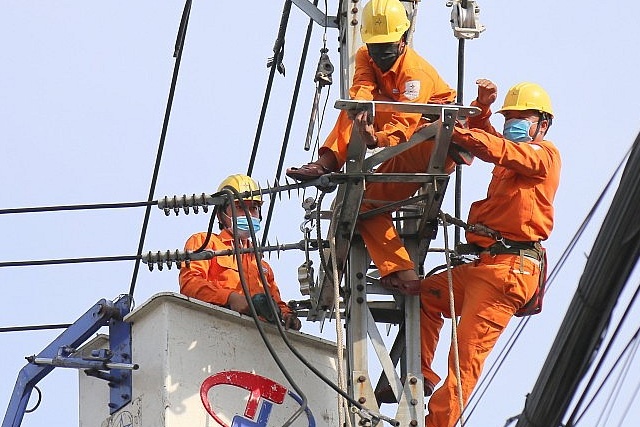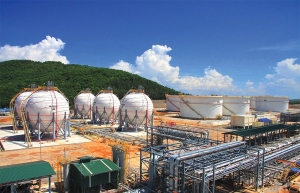New power bill could cover EVN's losses
This latest regulation is an amendment of Decision No.24/2017 from the MoIT on the mechanism to adjust the average retail power price, based on a request from the Government Inspectorate and the State Capital Management Commission at Enterprises.
It stems from the fact that there is currently no mechanism to help the state-owned power authority Vietnam Electricity (EVN) to tackle losses, exchange rate differences, and other costs that are not included within the calculations.
 |
This time, the draft continues to stipulate EVN's authority to increase and decrease power prices, while also shortening the price adjustment period from the current six months to every three months, meaning there will be four price changes per year.
The power prices are set to be updated quarterly to include electricity generation costs and other relevant factors that are currently not included.
Compared with the previous draft, the fresh version allows EVN to recover losses from electricity production and business expenses from the previous year.
| Compared with the previous draft, the fresh version allows EVN to recover losses from electricity production and business expenses from the previous year. |
Last year, the cost of electricity production skyrocketed amidst the exacerbated geopolitical situation, causing global fuel prices to rise from the middle of the first quarter.
Meanwhile, retail prices remained stable, leading to losses for EVN of more than VND26 trillion ($1.1 billion) in 2022.
This year, fuel prices are causing less stress but are still at a high level, affecting EVN's financial balance. The 3 per cent hike to the average power price that took effect on May 4 only partly resolved EVN's cash flow difficulties.
According to the Pricing Law, the calculations need to sufficiently cover actual costs, while also allowing room for a reasonable profit.
Therefore, the adjustment to the formula aims to better manifest the factors associated with electricity production and business costs.
At a government press conference on the amendment of Decision 24 on August 5, Deputy Minister of Industry and Trade Do Thang Hai noted, "Shortening the adjustment cycle from six to three months will better reflect fluctuations in input parameters and business costs, avoiding a sudden price spike in any one adjustment."
This is also consistent with current regulations requiring EVN to report quarterly power price updates.
Hai added, "The power price is a sensitive issue, directly affecting people and businesses, so the adjustments need to be reported to the Prime Minister to avoid affecting macroeconomic management and socioeconomic development."
Since 2017, power prices have been adjusted three times, rising by 6.08 per cent in 2017, and 8.36 per cent in 2019. Prices then remained stable for four years until May, when they inched up by a further 3 per cent.
 | PetroVietnam to take over two gas-fired power projects from EVN PetroVietnam is approved to take over the two gas-fired power projects from EVN: O Mon III and IV. |
 | EVN: northern power needs met but extreme weather concerns remain Electricity of Vietnam (EVN) announced on June 23 that it can now meet the basic electricity needs of the north of the country. The water level in the hydroelectric reservoirs rose in the days prior, and repairs have been carried out on the necessary thermal power plants. |
 | Vietnam contemplates crude oil supply sources to cover long-term strategies Oil producers are actively expanding crude oil supply sources domestically and internationally to support the shrinking supply in Vietnam. |
What the stars mean:
★ Poor ★ ★ Promising ★★★ Good ★★★★ Very good ★★★★★ Exceptional
Related Contents
Latest News
More News
- State corporations poised to drive 2026 growth (February 03, 2026 | 13:58)
- Why high-tech talent will define Vietnam’s growth (February 02, 2026 | 10:47)
- FMCG resilience amid varying storms (February 02, 2026 | 10:00)
- Customs reforms strengthen business confidence, support trade growth (February 01, 2026 | 08:20)
- Vietnam and US to launch sixth trade negotiation round (January 30, 2026 | 15:19)
- Digital publishing emerges as key growth driver in Vietnam (January 30, 2026 | 10:59)
- EVN signs key contract for Tri An hydropower expansion (January 30, 2026 | 10:57)
- Vietnam to lead trade growth in ASEAN (January 29, 2026 | 15:08)
- Carlsberg Vietnam delivers Lunar New Year support in central region (January 28, 2026 | 17:19)
- TikTok penalised $35,000 in Vietnam for consumer protection violations (January 28, 2026 | 17:15)

 Tag:
Tag:


























 Mobile Version
Mobile Version